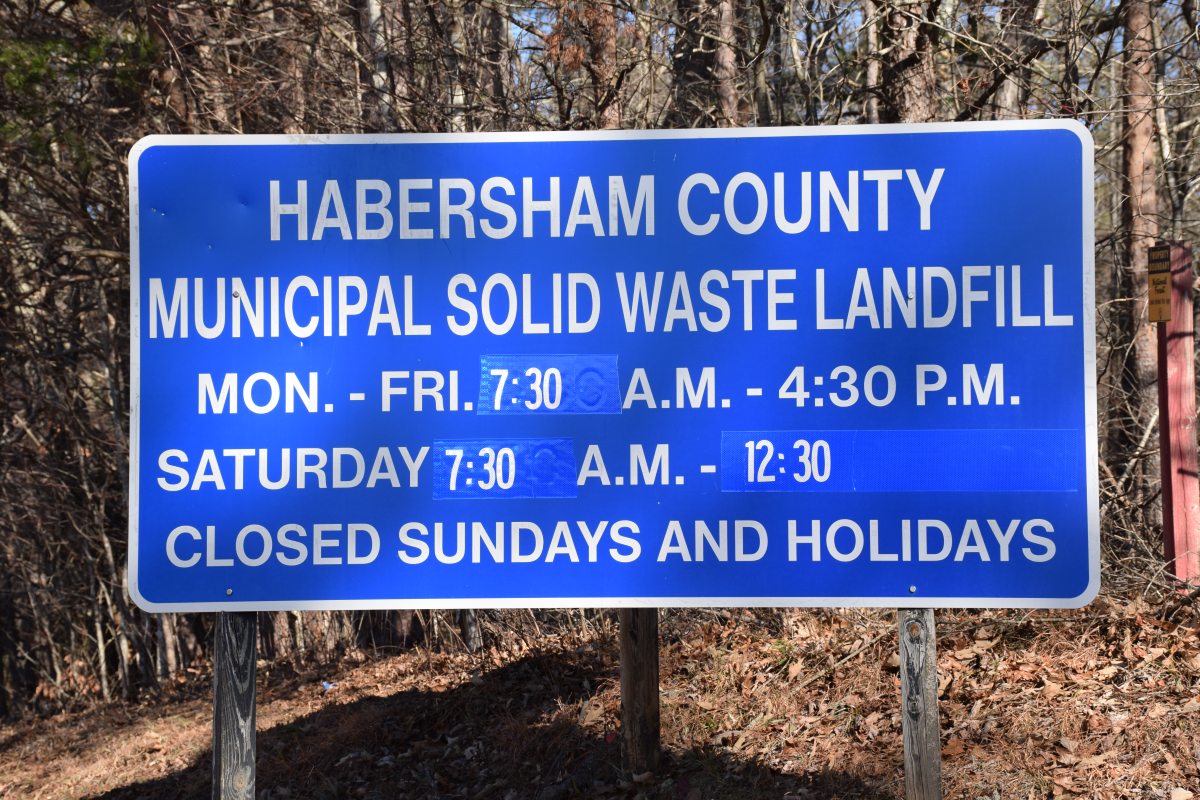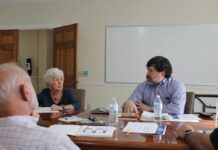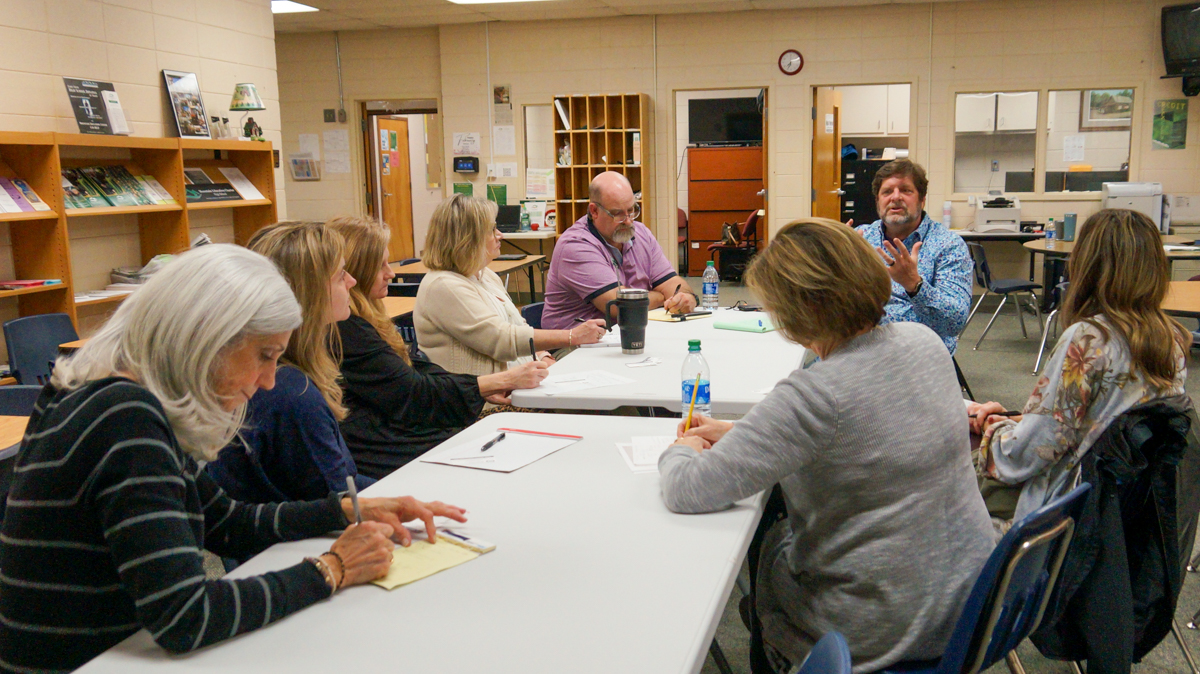
For some of Northeast Georgia’s student population, homelessness is a harsh reality they have to face each day. That’s where Ninth District Opportunity comes in to help.
Teachers and administrators gathered at Mountain Education Charter High School (MECHS) Thursday night to hear a presentation on NDO’s mission from Michael Fisher, who serves as NDO’s housing and project planner. Fisher shared resources and knowledge with the group, who often see the realities of homelessness and poverty in teenagers up close in their work. But he also let the MECHS staff know about the challenges the NDO and the people seeking their help are facing.
NDO works with Georgians in need to get access to needed services, such as affordable electricity, heating, water, housing, food, education and other necessities others may take for granted, and the need for those services and resources is higher now than ever before.
A lack of options
With prices for Northeast Georgia homes higher than what many working-class families can afford and a near-complete lack of affordable renting in the area, families are struggling to find anywhere to go. Because of this, Fisher says that for many families, looking at long-term hotel stays is the only option they have.
“That is the only affordable housing option that a lot of people have,” Fisher says. “If you do the math, that’s not affordable, but why did they take it? Because they only have to pay one week at a time, and there are just no other options. They can afford it on a week-by-week basis.”
While the NDO may have been able to connect those families with affordable and public housing in the past, most of those housing opportunities are full now. He says that for some local housing opportunities, waitlists span years.
Fisher says NDO is adapting to this challenge by offering hotel-motel vouchers to help individuals who are experiencing homelessness. They are able to give those individuals a safer place to stay for up to 30 days, and in that time, the NDO works to find housing for them. But it isn’t easy.
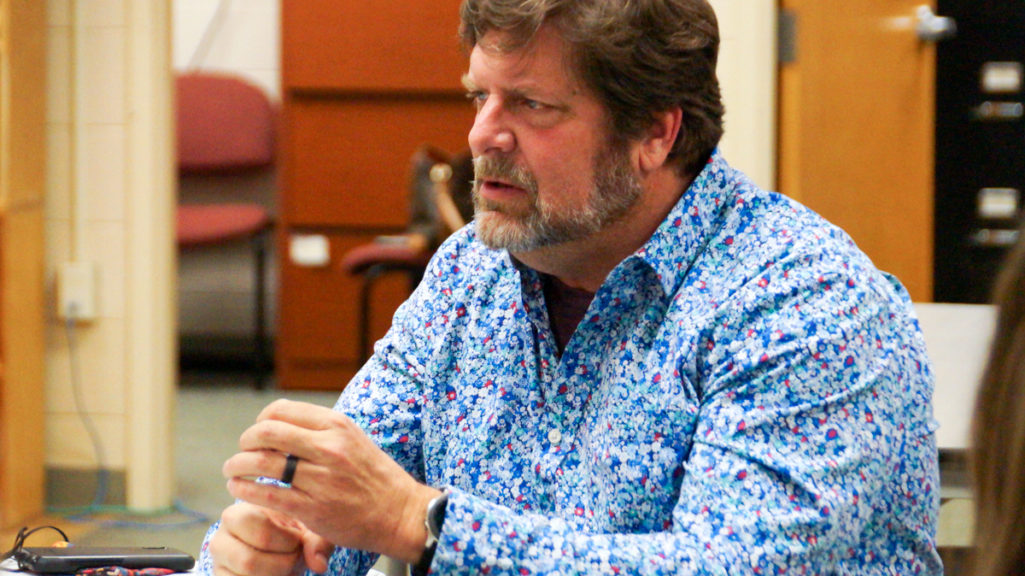
“There’s just nothing available right now,” Fisher says. “We’re seeing families just on the cusp of collapse everywhere because of this housing [issue], and it’s worse than people can imagine.”
He says many families are just one incident away from losing everything, something he calls “the death spiral.” If a child gets sick and a parent has to miss work to care for them and lose their hours, it’s a balancing act between what bills they can pay, and before they know it, they’ve lost their home.
NDO hopes to get involved before that “death spiral” starts, and that’s the reason Fisher sat down with the group: so they know who they can reach out to when a student is facing economic hardship, before that hardship becomes homelessness.
Destroying stigma
Just like MECHS has worked to destroy the stigma surrounding non-traditional high school education, Fisher is hoping NDO can help put an end to the disinformation that surrounds homelessness.
He says the biggest stereotype surrounding homelessness that he hears is that drug and alcohol addictions are why people are experiencing homelessness.
“It’s not what put people on the street,” Fisher says. “It may be [how] they cope with their horrible environment— and when you understand what it’s like living on the street, you probably would do the same.”
He says living on the street is living in constant survival mode, and that many people who are homeless got there after escaping domestic abuse, losing their spouse or family members, job loss, disability and financial crisis.
“I think we have to understand that these are not bad people that are just making bad choices,” Fisher says.
He also says that the stereotype that those individuals who are homeless are lazy is false. He says of the individuals experiencing homelessness that he works with who are in shelters, 70 percent work full-time. For those on the streets or in camps, he says 30-40 percent work full time.
“The reason more don’t work is because most of them have lost their ID in some capacity,” Fisher says. “That’s one of the biggest issues that a lot of the homeless have because they’re so transitory. Raids had happened in the camp with the police or bad people that come in, or they just have to leave, or rain comes through and destroys their identification.”
NDO offers an ID program to help those individuals get their identification to have the ability to work.
How does it end?
Right now, Fisher says there isn’t a clear answer on how to make sure NDO can continue to find resources for people who need somewhere to live, or help people experiencing homelessness get out of their current situation. With a lack of affordable housing and more people needing somewhere to go than ever, the situation is frustrating and there isn’t an end date to the struggles they’re facing.
But Fisher says there’s a place where a change can start, and that’s in the community. He says that for there to be solutions to end homelessness, the community has to rally together to make homelessness an issue they want to be solved.
“People don’t want to accept and understand that we have real issues,” Fisher says. “This is a crisis. This is not something that’s going to go away. It’s not going to solve itself.”
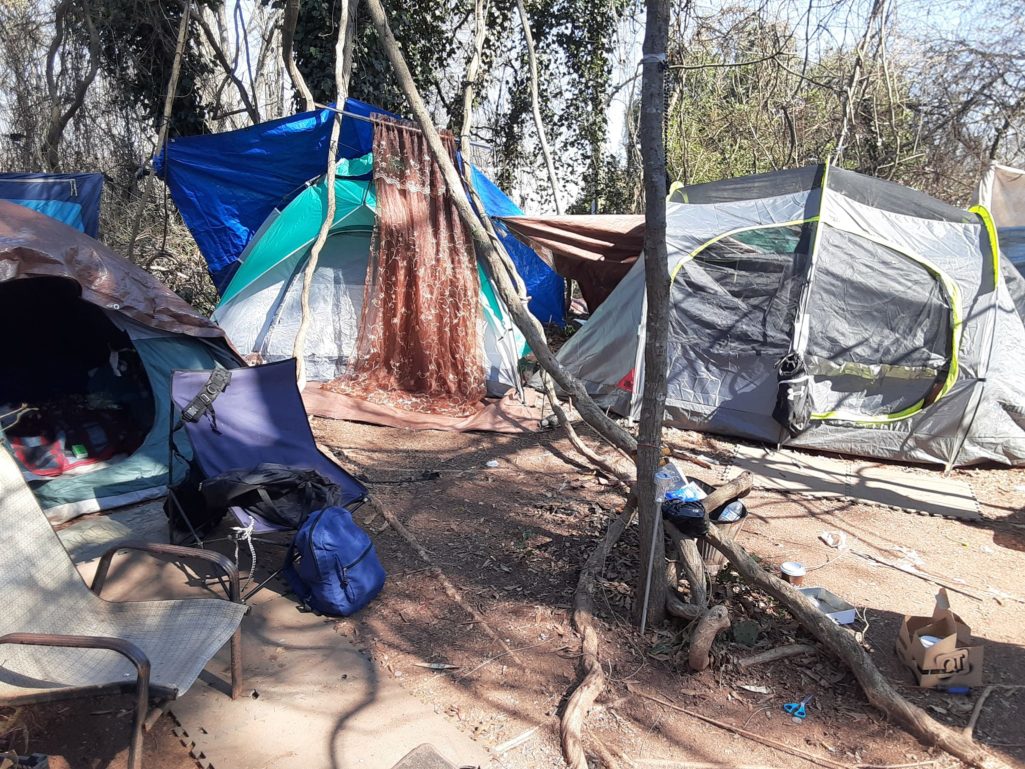
He says when the community begins to demand change, that’s when it begins. In Gainesville, where homelessness and poverty became hot topics in the city’s mayoral race, the city is now working with NDO to improve programs and infrastructure to support the city’s homeless population. While Hall County is beginning to see some of the change he hopes for, they still have a long way to go, but he hopes other counties will follow in their footsteps.
“Hall County’s coming around, White County is going be a minute,” he says. “However, there’s hope in time.”
If community members are looking for other ways to help the NDO’s mission to support people experiencing homelessness, they can make financial donations, volunteer or donate needed items, like clothes, food, blankets, tents and candles to the NDO at their Hall County, Habersham County or Stephens County offices.
If you’d like to learn more about the NDO’s program to help individuals experiencing homelessness, check out their Facebook page.



